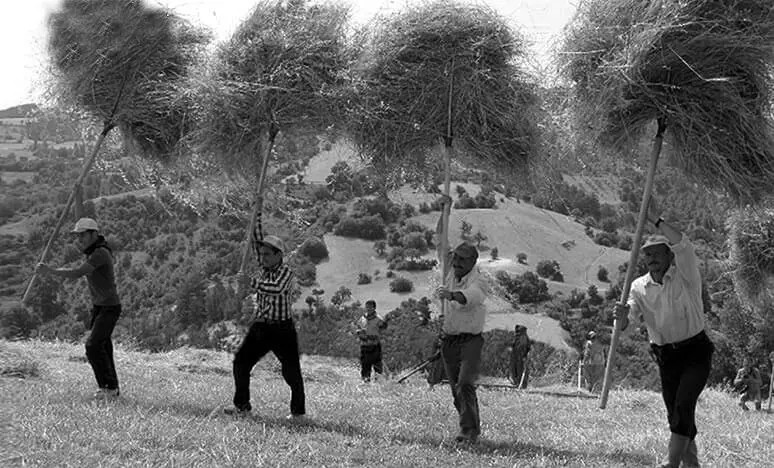"imece"

In Anatolia, the tradition of collective work, known as "imece," has been an integral part of the social fabric for centuries. Imece is a practice rooted in the principles of cooperation, mutual support, and community building. It embodies the idea that people can achieve more when they work together towards a common goal.
Imece traditionally involves the gathering of a group of individuals from the community to help one another with various tasks and projects. These projects can range from agricultural activities such as harvesting crops or building terraces for irrigation, to constructing houses, repairing infrastructure, or organizing communal events.
The concept of imece extends beyond just physical labor. It encompasses a sense of solidarity and shared responsibility among community members. Imece is not just about completing a task; it is about fostering a sense of unity and belonging. It promotes the idea that everyone has a role to play and that each contribution, no matter how small, is valuable.
Imece carries deep cultural and historical significance in Anatolia. It has its roots in ancient traditions and reflects the values of community interdependence that have been passed down through generations. In modern times, imece continues to thrive in Anatolia. Despite the influences of urbanization and globalization, many communities still embrace this tradition, recognizing its value in fostering cooperation and preserving a sense of belonging. Imece serves as a reminder of the power of unity and collective effort in overcoming challenges and achieving shared goals.
In conclusion, the tradition of imece in Anatolia embodies the spirit of collective work, cooperation, and community building. It is a testament to the strength and resilience of Anatolian culture, serving as a reminder of the power of unity and the importance of working together for the betterment of society.